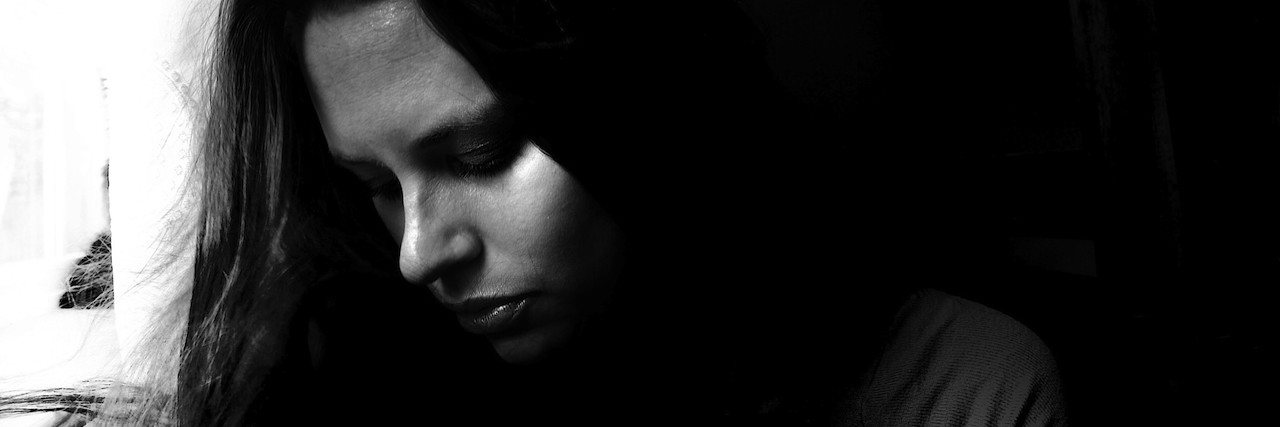There was a point in my life when I felt hopeless. It was such a continuous roller coaster of emotions, uncontrollable urges and self-hatred, I decided I did not want to live anymore.
I made a choice: I was going to overdose on medication in the hopes I would go to sleep and not wake up. What led me to this choice? After receiving the diagnosis of borderline personality disorder, my already heightened awareness of my feelings was intensified by this cruel illness I would have for the rest of my life. Of course, I know now a diagnosis is not a life sentence.
Growing up, I felt everything so intensely — joy, fear, rage, sadness, rejection, love, compassion and despair. I always felt like there was something different about me, that nobody cared about me, that other people didn’t hate themselves like I did. I would be sad or angry for seemingly no reason at all. As I got older, these emotions that seemed to come out of nowhere increased and intensified. All my life, I was told that I was “oversensitive,” “dramatic,” or “seeking attention.” Of course, statements like these and many others made me feel like what I was experiencing was invalid, and that there was just something wrong with me. I didn’t feel like I was living. I felt like I was merely existing.
I remember calling my mother and telling her I didn’t want to live like this. I wasn’t afraid of death, I welcomed it. Death meant an end to the ups and downs, the embarrassment, the constant struggle just to get through the day. I truly felt like I would rest in peace.
I had a suicide plan. I made a list of things I felt needed get done to lessen the burden on my family. I was crossing items off the list one by one as I completed them, but one day I decided I couldn’t make it any longer, it would take too long for the list to be complete.
I don’t recall picking up my phone or dialing my parents’ phone number, but I do remember being hysterical and crying saying over and over “I want to die, I want to die” to my mother. I told her I needed to go to the hospital.
This was not because I wanted to live. It was because I was taught that if I, or anyone else, was suicidal, you go to the hospital. It wasn’t self-preservation, it was obligation. It was just what I was taught to do.
But just because I didn’t make an attempt on my life doesn’t mean my feelings were not valid. But that is how I was treated. I was not hospitalized at my own will, I was being held there legally. I wanted nothing more than to go home and take every pill I could get my hands on, but I was put in the psych ward, monitored by cameras and in a hospital gown so that I could be identified as someone who was at risk.
Doctors and nurses came and went and they all kept telling me I didn’t really want to die, or else I wouldn’t have called my mother and would have actually made an attempt. They told me some small part of me wanted to live. These things were said to me over and over with the best intensions, but it completely invalidated my experience. I felt empty inside. I felt like I had already died and that I was in Purgatory, waiting for my time to ascend or descend to where ever I was going to spend my afterlife.
I felt as if I wasn’t being taken as seriously as someone who had attempted suicide. I felt like I was treated as if I “cried wolf.” For a medical professional to look me in the eye and say, “You don’t actually want to die” — it was like getting punched in the gut.
I truly felt like death was my only option, but was made to feel experiencing that level of hopelessness was completely invalid and irrational. I felt like I wasn’t allowed to feel traumatized because I didn’t have a physical attempt, but in reality I experienced the same feelings as those who had, and isn’t that traumatic in itself? For me, trauma isn’t always based on a physical act or experience, but can come from the feelings driving those actions. I was fortunate enough to have someone to intervene. My crisis is just as valid as someone who makes an attempt.
If I could give one piece of advice to medical professionals, family, friends or anyone who is touched by mental illness in any way, it’s that every person who’s suicidal should be taken seriously. Instead of dismissing their experience as “less real,” tell them you are sorry they’re experiencing those feelings, and ask how they feel and why. And then, just listen.
If you or someone you know needs help, visit our suicide prevention resources page.
If you need support right now, call the Suicide Prevention Lifeline at 1-800-273-8255. You can reach the Crisis Text Line by texting “START” to 741-741.

